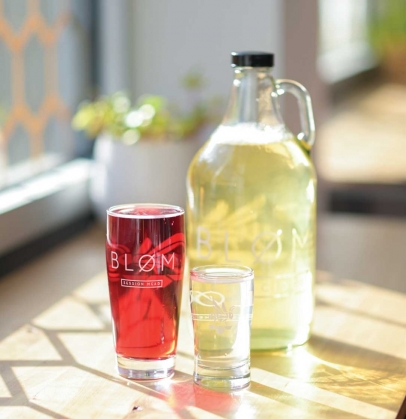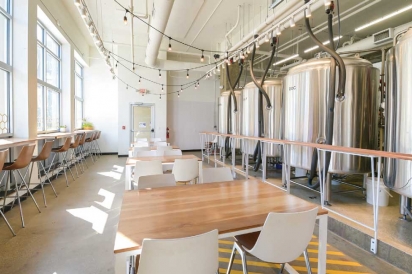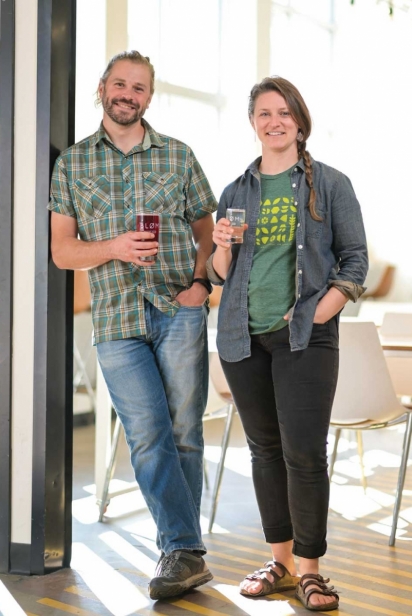Mead-A Modern Take on an Ancient Drink
THIS ANCIENT BEVERAGE is even older than beer and wine. Most likely originating in Africa, mead has ebbed and flowed in popularity throughout recorded history. Supposedly dubbed “nectar of the Gods” by the Greeks, mead has a place in various cultures—Chinese, Roman, Eastern European and Ethiopian civilizations—and is back in style here in Southeastern Michigan with local mead brewers in Ferndale, Ann Arbor and elsewhere.
Created by mixing water with fermented honey, mead is among the simplest of all alcoholic beverages, yet one of the most enduring throughout history. Modern mead, like modern wine or beer, is much more sophisticated than the basic earliest recipes.
Contrary to popular belief, not all mead is sweet. Modern mead ranges from bone dry to semi-dry to incredibly sweet. Variables that affect the sweetness are the concentration of honey, the yeast and the fermentation temperature. Yes, it can be a complicated formula, but you just need to sit back and enjoy the vibrant variations of this ancient drink.
Meadmakers first dilute the honey with water to create a must, similar to wine must from freshly crushed grapes containing the skins, seeds and stems of the grapes. The honey used in mead changes with the seasons: Spring honey is lighter and fruitier than fall honey, which is fuller in flavor and darker in color.
Yeast is then added to the must to ferment it. The range of yeasts used is mind-boggling and has an enormous impact on the final product. Many meadmakers assert that the yeast used is one of, if not the most important ingredient, in mead. Oxygen may also be added to the must to assist in the fermentation. Additional ingredients— fruit, spices, herbs, flowers, grains and hops—customize the basic honey wine. As fermentation happens, mead is aged for a few months to a few years.
Mead’s recent popularity comes in part to it being gluten-free, providing an appealing alternative for legions of former beer drinkers.
Its alcohol content usually ranges from 3 percent to 20 percent alcohol by volume (ABV), fairly potent for an adult beverage. For perspective, wine’s alcohol content ranges from about 10–12 percent for white wine, while most red wine is 12–15 percent. Fortified wines such as port, sherry and sake are usually 18%-–35 percent. Lighter beers such as pilsners and lagers are 4–5 percent while IPAs, porters and stouts are usually 7–15 percent.
Lauren Bloom and Matt Richey founded Bløm Meadworks in downtown Ann Arbor in 2108. This family business prides itself on what they call “session” meads. Frequently used to describe beer, the term session likely originated from World War I–era Britain where low-alcohol beer was produced to keep the party going while maintaining a bit of sobriety.
Native Michiganders, Bloom and Richey moved to Ann Arbor after Richey learned he was allergic to gluten when he was chief brewer for Begyle Brewery in Chicago. He realized he needed a new career path. Founding Bløm Meadworks, focusing on mead and cider, became the silver lining.
Most of Bløm’s meads are semi-dry because they prefer the lighter, crisper style, says Bloom.
Whenever possible, Bløm sources ingredients from the local community. One of their favorite farms is Gateway Farm in Plymouth. Bloom and Richey also worked “to create a communal space where customers can come, hang out, have a few meads and feel safe and comfortable,” says Bloom.
Another local meadery, B. Nektar, is “not only one of the first meaderies in Michigan, it’s also one of the top three largest meaderies in the United States,” according to Kerri Dahlhofer, who co-founded it with husband Brad. The Dahlhofers opened B. Nektar on August 2, 2008 (National Mead Day). In the years since, they have built their business into one of the most well-known and successful in the craft brewing world. It was the first to be named to the top 100 best breweries in the world by Ratebeer.com.
“Semi-sweet is the preferred style here at our meadery,” says Kerri Dahlhofer, who says they use “over 3,000 pounds of honey a month” to craft their range of beverages.
Blom Meadworks 100 S. 4th Ave., Suite 110, Ann Arbor 734-548-9729 | drinkblom.com
B. Nektar 1511 Jarvis St., Ferndale 313-744-6323 | bnektar.com







